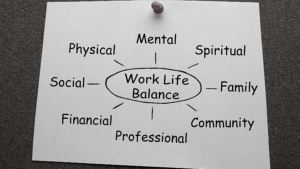If you’re an AT working in a traditional setting then you know how important it is to advocate for yourself so you don’t get burnt out by the long hours and demanding expectations.
Self-advocacy can be difficult, especially when what you do requires selflessness and oftentimes putting others before yourself. However, it is necessary to set boundaries and communicate in a straightforward way so you can sustain the demands.
As a company that is passionate about advocacy and work-life balance, we wanted to share some ways you can set boundaries for yourself in a traditional setting.
This is something we support our ATs in and with the holidays coming up we thought this was an ideal time to set those boundaries and ask for what you need.
- Negotiate tournaments: if you live out of town and want to go back home for the holidays, find sub coverage so you can make that happen. Get on this early so it’s all set up before the holidays arrive and use your network to find an AT to help you out and your organizational skills to get everything in order and feel confident when you communicate it to your higher-ups.
- Communicate your availability: look at your availability and make any necessary adjustments so you don’t get taken advantage of. Set yourself up for success and clearly communicate when you are and are not available so everyone is on the same page.
- Set up home exercise programs before leaving: feelings of guilt can arise when we take time off so set up home exercise programs before you leave to know you’ve done what you can to set your athletes up for success and feel more confident in doing what’s best for you. One of our favorite tools for this is HEP2go its free and super easy to create home exercise programs with!
- Send availability & set OOO notifications to all coaches: communication is key to having boundaries respected. Send an email to be clear about when you will be taking off and keep everyone in the loop. You can also set up an out-of-office (OOO) auto-response email so that if anyone forgets and tries to reach you they will be notified and reminded that you are off the clock.
- Schedule what you can ahead of time: schedule anything you can (social media posts for organization, scheduling Dr appts for athletes, communicating with parents, other emails, etc.) in advance to keep yourself from working during your time off. This will help you be present during the holidays and enjoy your time away.
Self-advocacy is a practice.
The more you do it the easier it will get, but the most important thing is to communicate your needs and do what you can to set yourself and your athletes up for success while you’re away.
Feelings of guilt for taking time away may pop up, but not doing it may bring up feelings of bitterness. We all need time away and just because you give so freely to others doesn’t mean you don’t deserve your time off, too.
Your work and athletes will be there when you get back so use this time to get refreshed and come back stronger than ever!






